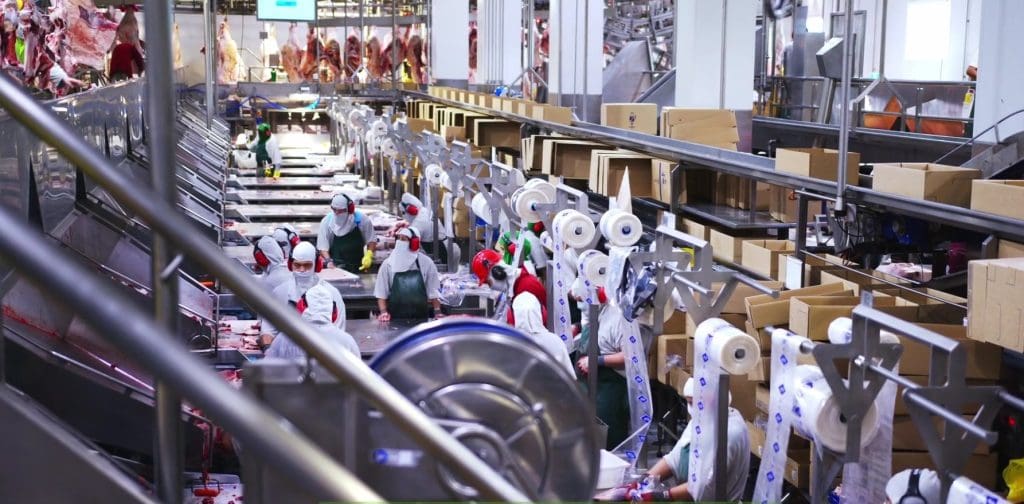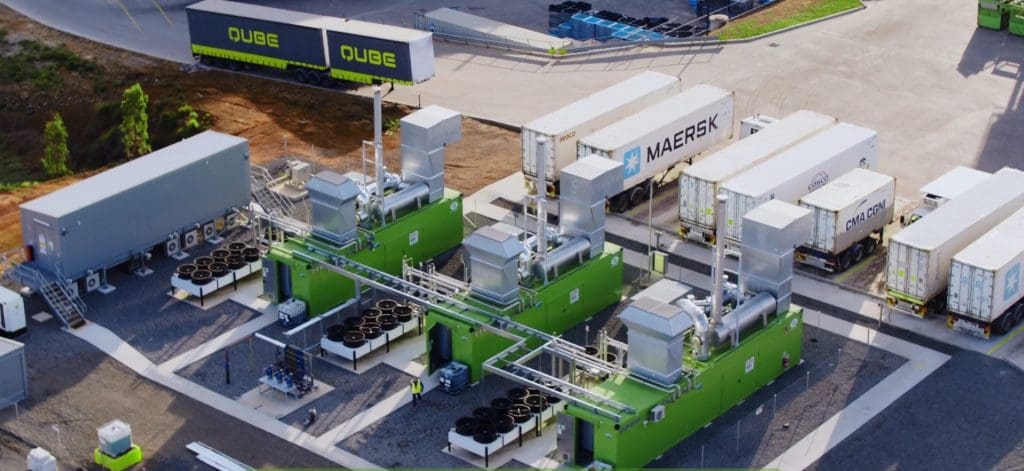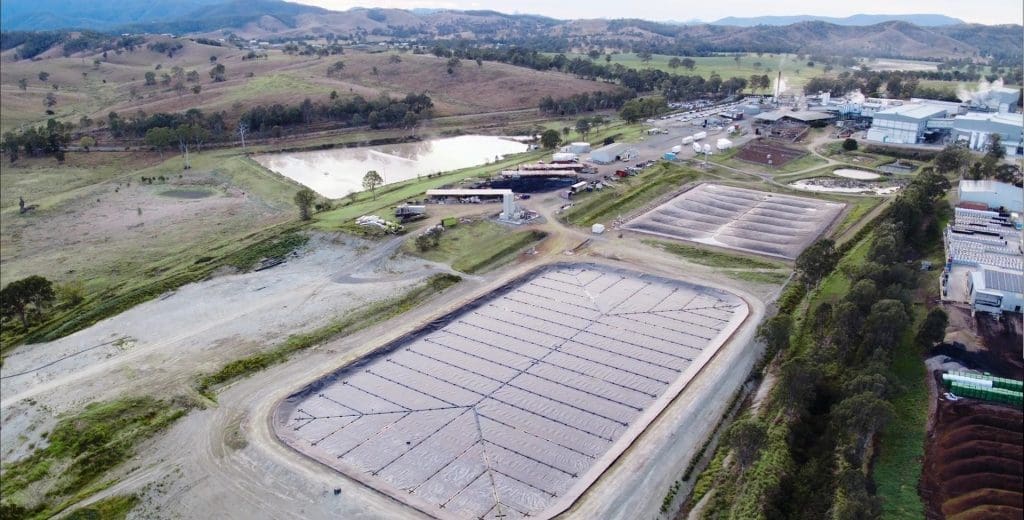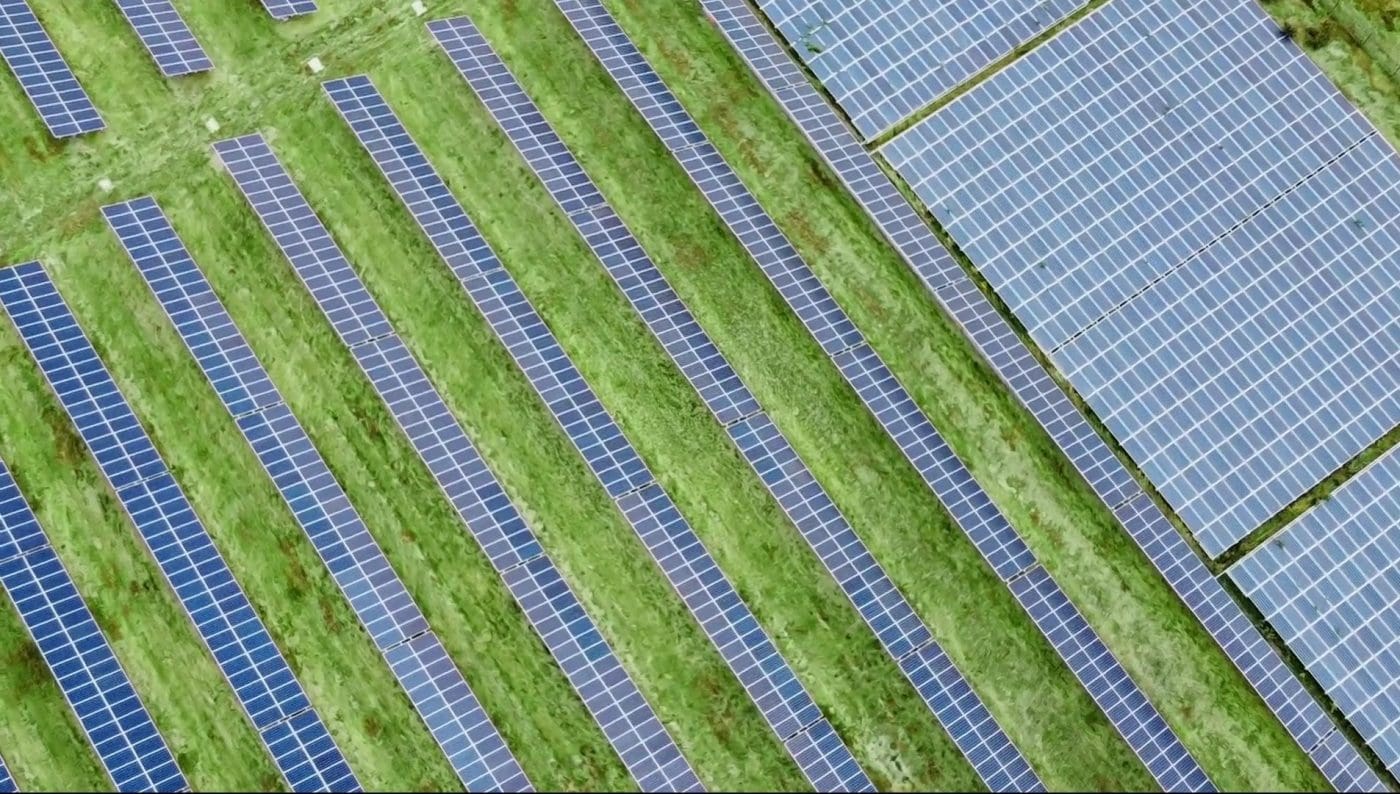
KILCOY Global Foods’ grainfed beef processing facility north of Brisbane has become the first and only large-scale beef plant in Australia, and potentially the world, to reach certified carbon neutral status.
Through a series of enormous alternate energy investments made over the past three or four years, the Kilcoy plant, under the operating entity Kilcoy Pastoral Co, in December received official Carbon Neutral certification, through Climate Active.

Climate Active is an Australian Government program supporting national climate policy by driving voluntary climate action by Australian businesses.
Other Kilcoy-owned meatworks in Victoria, including Hardwicks and Lance Creek, are not included in this first first certification.
Some participants in other parts of the Australian red meat supply chain have already claimed carbon neutrality in their production systems, but Kilcoy’s achievement is the first in the Australian meat processing sector. Web searches by Beef Central failed to find any evidence of similar claims in processing overseas.
By their very nature, meat processing facilities are energy-hungry, requiring large volumes of electricity for motors, conveyors, refrigeration and lighting, as well as steam, hot water and other energy-dense production requirements.
Kilcoy’s achievement of credible carbon neutral certification presents some exciting possibilities to add product claims in the company’s high quality grainfed and Wagyu beef brands sold around the world – although the company says it has no immediate plans in this space.

Three large biogas generators installed at Kilcoy will produce 4Mw of power each year
Kilcoy’s Australian division president Jiah Falcke told Beef Central the company was pursuing fresh, natural and convenient food solutions that have a reduced impact on the environment and Australia’s precious natural resources.
The cornerstone of the company’s project at Kilcoy, an hour north of Brisbane, is the switch to renewable energy sources, through three main channels:
- Co-generation of power through harvested methane
- The adoption of biomass boilers, and
- Solar power generation through panels.
Co-generation uses biogas produced from bio-rich waste water collected in settlement ponds to produce methane. Two large anaerobic digesters called CALs break down waste water, producing bio-gas in the form of methane and treated waste water. The biogas is converted to energy via generators, with the capacity to generate four megawatts of electricity per year.
Kilcoy’s bio-energy co-generation project will allow the Kilcoy processing plant to reduce electricity consumption from the grid, and produce 100pc renewable hot water, representing the equivalent of electricity used by 4000 households each year, the company said.
In addition, a new bio-mass boiler will completely eliminate Kilcoy’s dependence on coal as a source of energy, further reducing KGF’s direct emissions. The biomass boiler uses natural wood by-products as sustainable fuel sources.

Co-generation uses biogas produced from bio-rich waste water collected in settlement ponds to produce methane
Solar installations
In addition to the biogas projects, Kilcoy has invested heavily in solar panel installation, as a secondary source of energy further reducing carbon generation.
In addition to its energy generation projects, Kilcoy’s broader environmental and sustainability aim is to reduce its water use by ten percent each year – the equivalent of 30 Olympic swimming pools. One hundred percent of wastewater is re-used on site, to irrigate 600ha of surrounding farmland, producing around 4000t of hay each year, complementing the company’s circular land practices.
Mr Falcke said the company’s business was intrinsically linked to agriculture and the environment. Kilcoy was committed to being an industry leader among its peers, and the company was committed to fostering its environment for generations to come.
Third-party Climate Active certification achieved by Kilcoy Pastoral Co is awarded to organisations that have reached a carbon-neutral level, against the requirements of Climate Active’s carbon neutrality standards.

Kilcoy’s solar panel arrays
Kilcoy’s Public Disclosure Statement attached to its carbon neutral certification states that for the current 2024 calendar year, total emissions offset amounted to 31,918t of CO2 equivalent. Offsets used included 44pc Australian Carbon Credit Units and 56pc VCUs (international Verified Carbon Units using the Veera registry, similar to ACCUs). Renewable electricity generated was 30pc of total requirements.
“Kilcoy Global Foods as a group is committed to supporting the community at large and developing robust partnerships to ensure we are building a sustainable and industry-leading business,” the company’s Disclosure Statement says.
“Our values are integrity, curiosity, collaboration, provenance and passion. We are committed to business practices that have a positive social effect on society, and our social impact goals also include our noise reduction program, odour reduction program, local sourcing & traceability program, ethical business conduct and customer value chain creation program,” the statement says.
Some of the company’s sustainability goals include a shift towards renewable electricity generation and 100pc renewable heat generation in 2024.
Emissions reduction strategy
Kilcoy’s business is intrinsically linked with nature and agriculture,” the company’s Public Disclosure Statement says.
“Climate change is one of the most significant issues that will impact the long-term prosperity of the industry and way of life. It impacts natural cycles of water, soils, biodiversity and ecosystems that play a vital role in the production our food.”
“Environmental sustainability is a cornerstone of all our processes, systems and business activities. We are continually looking for ways to reduce the impacts of our facilities, products and operations on the environment,” the statement says.
“Through water, electricity, land management, waste reduction, animal welfare and technology initiatives, we’re leading the industry in environmental practices. As a responsible corporate citizen, we recognise the urgent need to take decisive action to reduce our organisation’s carbon footprint and contribute to a sustainable future.”
“To this end, we are embracing an emissions reduction strategy that outlines specific actions to shift away from fossil fuels, reduce energy consumption, limit waste to landfill, and transition to carbon-neutral business travel.
Reduction targets
Kilcoy Pastoral Co has committed to a reduction target of 50pc by 2026 for Scope 1, 30pc by 2027 for Scope 2 and 30pc for Scope 3 emissions by 2030 emission sources from a 2022 baseline.
Scope 1 emissions will be reduced by:
- By mid 2024, a new biomass boiler will be installed to replace an existing coal-fired boiler. This will reduce carbon emissions from Stationary Energy (solid fuels) by up to 50pc in 2024 from the company’s 2022 baseline.
- Further reductions benefit from the above step will be fully realised in 2025 when Kilcoy’s carbon emissions from Stationary Energy (solid fuels) by up to 90pc in 2025, from its 2022 baseline.
Scope 2 emissions will be reduced by:
- The major wastewater to energy project implemented in 2022 will be generating up to 50pc of the electricity required from biogas and produce hot water as a part of the process. This reduces Kilcoy’s demand for grid-based electricity.
- The company is exploring alternative options to further reduce grid-based electricity from Solar PPAs with Green Power in 2024.
Scope 3 emissions will be reduced by:
- Kilcoy will reach a zero waste to landfill status by the end 2024, currently recycling/reusing 95pc of the waste produce. The company is working with supply chain partners to ensure it reaches its goal of zero waste to landfill for the remainder of its waste.
- Reduction in business travel with more video conferencing facilities to be implemented and the use of more Climate Active Carbon Neutral Products within the organisation will reduce emissions by 30pc by 2030, relative to its 2022 numbers.
